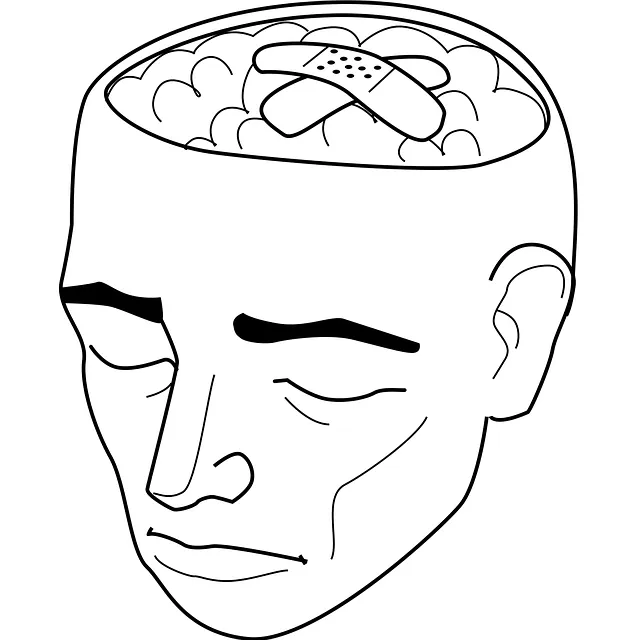Kaiser Permanente Mental Health Denver offers specialized programs addressing social challenges faced by individuals with mental health conditions, promoting resilience and improved well-being. Their evidence-based approach combines mindfulness meditation, journaling, and comprehensive Social Skills Training to enhance communication, emotional regulation, and self-awareness. These initiatives, tailored to clinical needs and cultural backgrounds, empower participants to build stronger relationships, manage stress, and achieve better long-term mental health outcomes. Success stories highlight the transformative impact of these holistic programs on confidence, coping abilities, and support networks within the Kaiser Permanente Denver community.
Social skills training is a powerful tool for individuals navigating mental health conditions, offering a pathway to improved well-being and enhanced relationships. This article explores how programs like those provided by Kaiser Permanente Mental Health Denver are revolutionizing support systems. We’ll delve into the impact of mental health on social interactions, the program’s core focus areas, and successful strategies employed. By understanding these aspects, we can recognize the transformative potential of social skills training, specifically within the context of Kaiser Permanente’s innovative approach.
- Understanding the Impact of Mental Health Conditions on Social Interactions
- The Role of Kaiser Permanente Mental Health Denver in Skills Training
- Identifying Core Social Skills for Improvement
- Strategies and Techniques Employed in Training Programs
- Real-World Application: Success Stories from Kaiser Permanente's Programs
Understanding the Impact of Mental Health Conditions on Social Interactions

Mental health conditions can significantly influence an individual’s social interactions and overall ability to connect with others. Common challenges include difficulty initiating or maintaining conversations, interpreting social cues, and managing emotions in social settings, which often lead to feelings of isolation and loneliness. The impact varies across conditions; for instance, individuals with anxiety disorders may struggle with assertiveness and confidence, while those with depression might find it hard to engage in activities that foster social connections. In the context of Denver, Kaiser Permanente mental health services offer specialized programs aimed at addressing these social barriers.
Building resilience is a cornerstone of these interventions, empowering individuals to navigate social situations more effectively. Techniques such as mindfulness meditation and mental wellness journaling exercises are incorporated into therapy to enhance self-awareness and emotional regulation. By providing guidance on communication strategies and practicing active listening, patients gain confidence in their interactions. These evidence-based approaches not only improve social skills but also foster a sense of belonging and contribute to the overall improvement of mental wellness.
The Role of Kaiser Permanente Mental Health Denver in Skills Training

Kaiser Permanente Mental Health Denver plays a pivotal role in empowering individuals with mental health conditions by offering specialized Social Skills Training programs. These initiatives are designed to enhance communication, interpersonal relationships, and coping strategies, addressing key aspects often impacted by various mental health disorders. Through interactive workshops and one-on-one sessions, the team at Kaiser Permanente provides a supportive environment for learning and growth.
The organization’s commitment extends beyond treatment; they also offer crucial resources like Risk Management Planning for Mental Health Professionals, ensuring practitioners are equipped to handle crises effectively. Additionally, their Crisis Intervention Guidance programs equip individuals with tools to navigate challenging situations, promoting resilience and self-care. This holistic approach reflects Kaiser Permanente Mental Health Denver’s dedication to not only treating mental health conditions but also fostering a community where individuals can develop essential social skills for long-term well-being.
Identifying Core Social Skills for Improvement

When it comes to Social Skills Training for mental health conditions, identifying core skills for improvement is a critical first step, especially in the context of Kaiser Permanente mental health Denver services. Healthcare providers play a pivotal role in facilitating this process, considering not just clinical needs but also the individual’s cultural background and unique challenges. For instance, building effective communication strategies, such as active listening and assertive expression, can significantly enhance social interactions. Additionally, coping skills development, including stress management techniques, is essential for navigating daily life with mental health conditions effectively. These foundational skills form a strong base upon which individuals can build healthier relationships and improve their overall well-being, aligning with the goals of comprehensive mental healthcare services like those offered by Kaiser Permanente Denver.
Strategies and Techniques Employed in Training Programs

Social skills training plays a pivotal role in addressing mental health conditions, particularly for individuals managed under Kaiser Permanente mental health Denver. These programs employ a multifaceted approach, combining evidence-based strategies and techniques to foster effective communication, emotional regulation, and interpersonal interactions. One such method involves role-playing scenarios that simulate real-life situations, enabling participants to practice new skills in a safe environment.
Furthermore, Mental Health Policy Analysis and Advocacy is integrated into training curricula to empower individuals with knowledge about their rights and available resources. Inner Strength Development techniques focus on building resilience and coping mechanisms, thereby enhancing an individual’s ability to navigate challenges. Additionally, Crisis Intervention Guidance equips participants with tools to recognize and manage acute distress, promoting early intervention and better long-term outcomes.
Real-World Application: Success Stories from Kaiser Permanente's Programs

At Kaiser Permanente in Denver, we’ve seen remarkable success stories through our dedicated Social Skills Training programs tailored for individuals managing mental health conditions. These initiatives focus on empowering patients with essential tools to navigate social interactions and foster meaningful connections. By combining evidence-based practices with a compassionate approach, our programs have significantly enhanced the emotional well-being of countless participants.
Through interactive workshops and group sessions, we teach effective communication strategies, empathy-building exercises, and resilience-enhancing techniques. This holistic training encourages self-care practices that go beyond traditional therapy. Many of our clients report improved confidence in social settings, better coping mechanisms, and stronger support networks following their involvement. These success stories highlight the transformative power of integrating emotional well-being promotion techniques into comprehensive mental health care.
Social skills training plays a pivotal role in enhancing the lives of individuals with mental health conditions, and Kaiser Permanente Mental Health Denver is at the forefront of this initiative. By focusing on identifying core social skills for improvement and employing evidence-based strategies, their programs have achieved remarkable success in helping clients navigate social interactions more effectively. These real-world applications showcase how tailored training can foster better communication, build self-confidence, and ultimately improve overall mental well-being, all under the expert guidance of Kaiser Permanente’s dedicated professionals.






